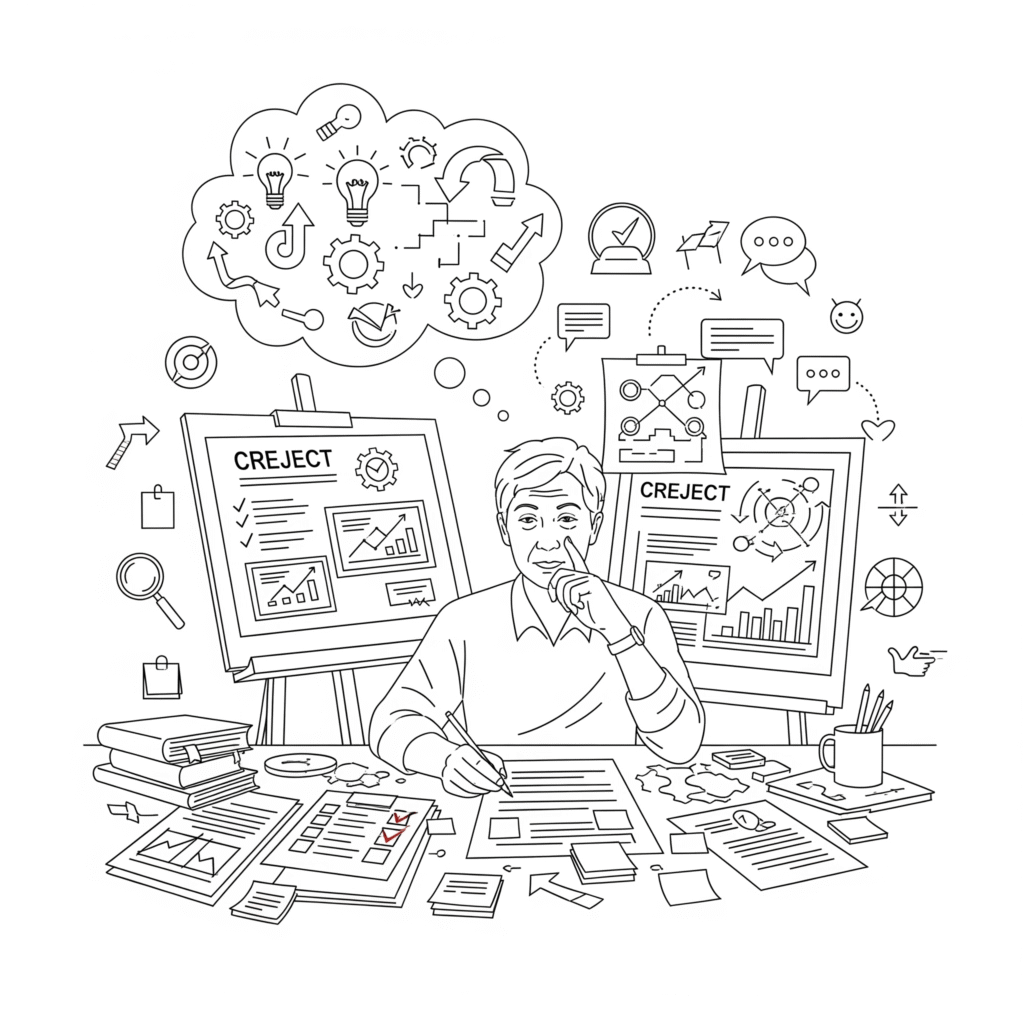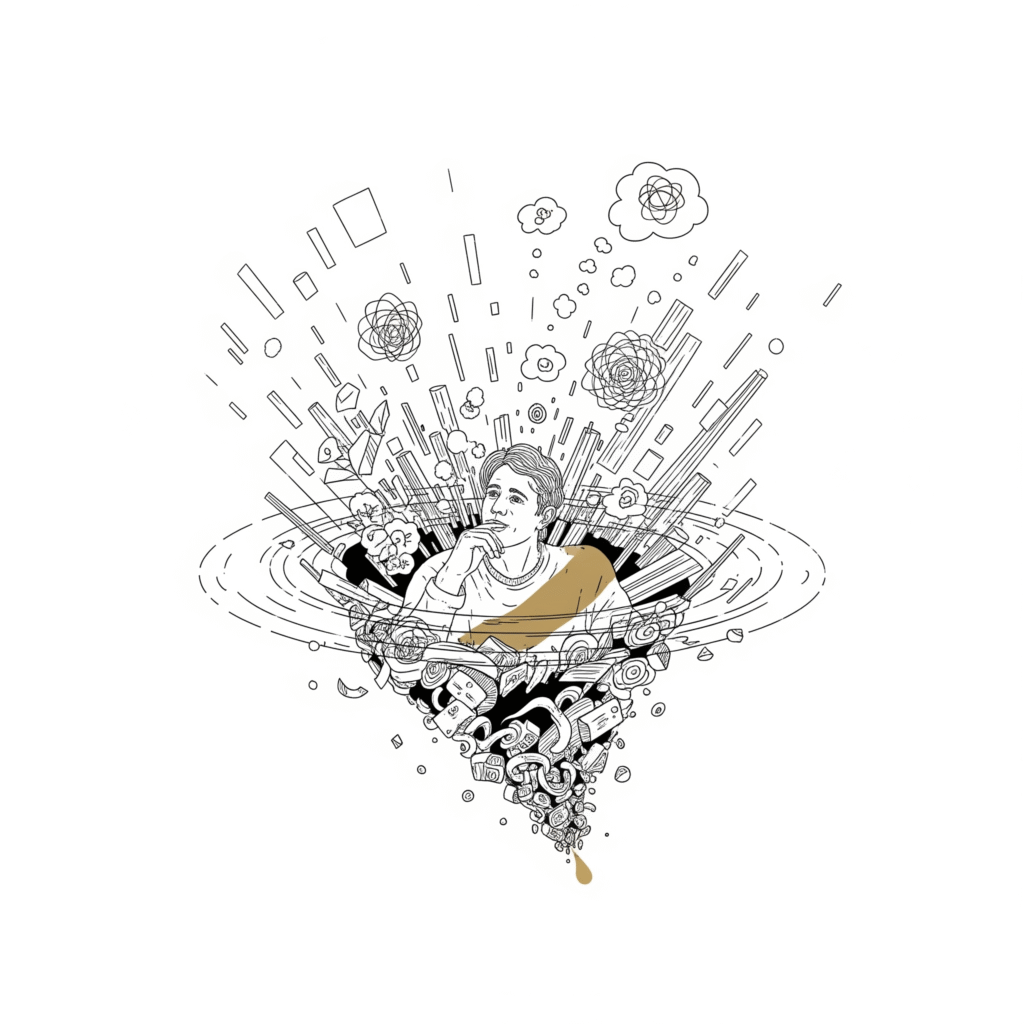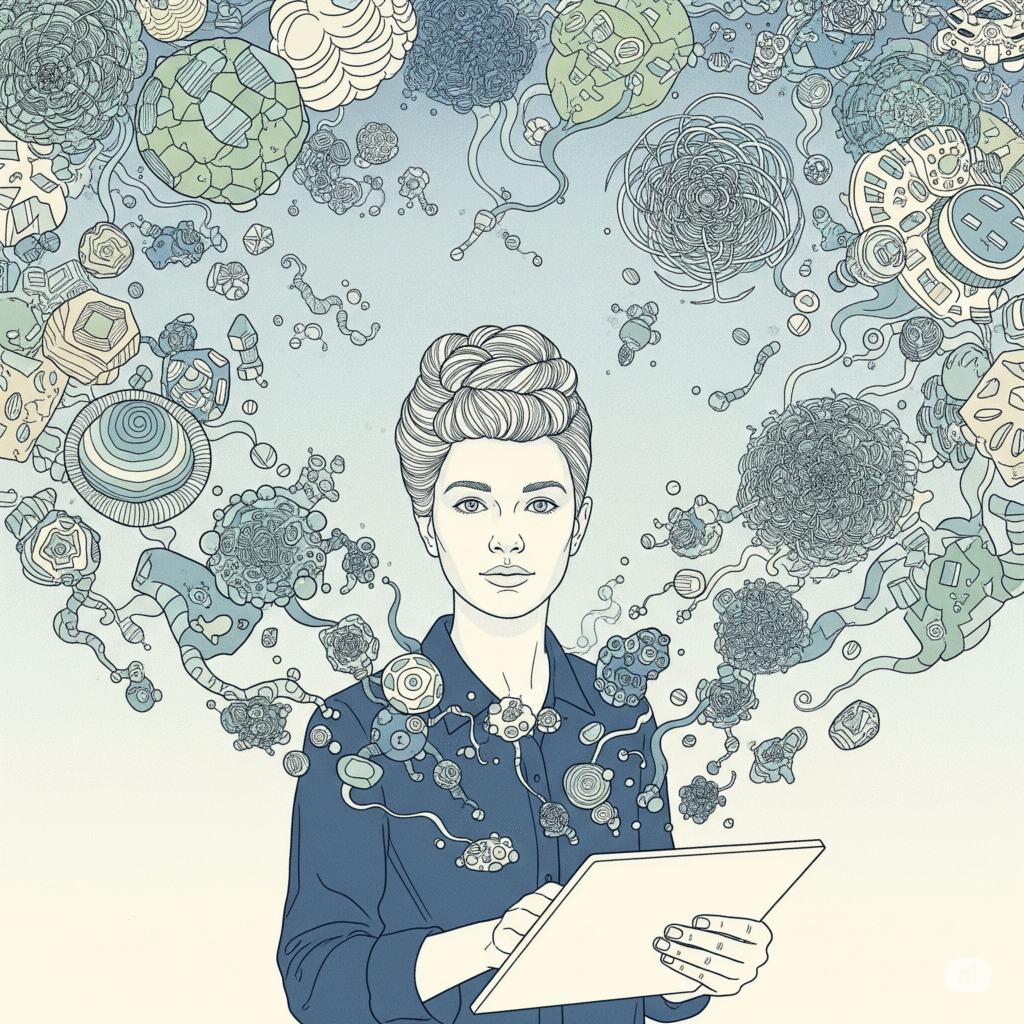Reflect, Refine, Repeat: Turning Creative Projects into Growth Engines
The end of a project can sometimes mean the beginning of a new one. Therefore, it is important to sit back and reflect on the whole process and write down all the lessons learned. Your journey in this project may be full of challenges or moments in which you demonstrate your excellence.
Whether you are a writer revising your second book based on feedback from the first, or an entrepreneur refining a product after customer reviews. This step is crucial for future success.
Constantly reflecting and reconsidering projects helps you develop your spirit of constructive criticism and makes you more capable of identifying aspects that need development in the future. Reviewing ideas and learning from past experiences allows you to explore new tools. Also, it allows you to try out unfamiliar strategies that may become essential parts of your next projects.
Creativity doesn’t stop at one or two projects; it’s a constant stream that needs to be fed and ignited by new and diverse sources. When you finish a project and start thinking about how to improve it or take new steps, you are building a system for generating ideas on an ongoing basis and allowing yourself to explore innovative directions you never thought of before.
Learning from Each Project
In this stage, you should analyze your mistakes to avoid them in future projects. This will enable you to adapt to changes and learn from difficult experiences. For example, if you did a marketing campaign that didn’t perform well, you should analyze the messaging, timing, or the targeted audience to pinpoint what went wrong. The following points explain some techniques that will help you learn from each project:
- Identify opportunities for improvement: After you review successes and challenges, ask yourself questions about what can be improved next time. Ask yourself: Could a better tool streamline this process? Were there unnecessary steps that could be simplified? How could task management be improved for a better and smoother execution?
These types of questions can help you identify opportunities for which you may be prepared. It also gives you a clear vision of how to improve your performance in future projects.
Record lessons learned:
One of the best ways to ensure that you benefit from each project is to record the lessons learned. When you document your experience, you can refer back to it at any time to retrieve the ideas and tips you have gained.
Continue to adapt and develop:
When you treat projects as a dynamic learning process, you will be able to transform from someone who implements ideas to someone who learns and grows with each project. Adapting to the results and learning from them makes you a more confident and innovative person who can face challenges, and makes each project a step towards a higher level of development and creativity.
Use reflection as a method for building self-confidence:
Every step you take to reflect on your experience is a reinforcement of your belief that you are capable of development and improvement. Through continuous reflection, you feel that you are in control of your creative future and that you are moving towards achieving your goals with steady and conscious steps.
Learning from each project is a valuable process that gives you a unique ability to improve. Each project you complete represents a brick that you add to the foundation of your skills and experiences. Moreover, you can build a path toward achieving your goals with more professionalism and creativity.
How to Bring Insights to Your Next Projects
Even though some of the lessons that will learn may seem theoretical, the ability to apply them to new projects is what will make you excel in your career. You may have gained experience in how to manage time better, learned the importance of effective communication with the work team, or even realized how certain tools can save you a lot of effort.
All of these lessons will become a solid foundation that builds your future successes when you start applying them.
Developing your work style and implementation strategy.
Each project you undertake is an opportunity to identify the work strategies that work best for you. Over time, you will learn your unique way of completing tasks, and you may notice that there are specific techniques that help you increase your productivity.
When you apply these learned techniques to your upcoming projects, you build a working system that is constantly evolving, making you more efficient in achieving your goals.
Improving your organization or streamlining your steps may be the secret to your next success, and applying them based on your past experiences will ensure a smoother and clearer path.
Innovation and Benefiting from Accumulated Experiences
Looking at previous lessons as a source of inspiration helps you stimulate the innovation and creativity side of your upcoming projects. Previous experiences provide you with a deeper understanding of what might work best, which gives you the ability to reshape your strategies in innovative ways.
Establishing a Culture of Continuous Learning
Applying lessons learned from previous projects fosters a culture of continuous learning in your professional and personal life. When you make learning and development a permanent approach, you build a lifestyle that allows you to adapt and grow in a changing environment.
Adapting to changes and achieving excellence
Applying lessons learned from previous projects will enable you to adapt to new changes and challenges quickly and easily. Each experience gives you additional strength and enables you to adapt to different working conditions, whether related to the work environment, customer requirements, or even new technologies.
Retaining and applying lessons puts you in an advanced position that makes you ready to seize opportunities and achieve repeated success in various circumstances.
Applying lessons learned from past projects will also help you build a unique creative identity because each experience will add something new to you.
This accumulation of knowledge distinguishes you from others and makes your experiences a catalyst for creativity and innovation. By repeating successes and avoiding mistakes, you become a creative person with an exceptional ability to achieve goals with high efficiency and professionalism.
How to Keep the Stream of Ideas Flowing
Generating endless ideas is the core of creativity. To maintain the flow of ideas, it is necessary to adopt thoughtful strategies and daily practices that enhance their imagination and expand their horizons.
Always be curious to learn more not only in your field of specialization but also in other fields. Moreover, be open to new experiences and cultures as this will widen your horizon and reflect on your future work. Here are some other tips that will help you keep the stream of ideas flowing:
- Make it a habit to record ideas continuously. Remember that some ideas may seem simple or immature at first, but they can later develop into inspiring projects.
- Interacting with people who share your passion for creativity can open up new horizons for you.
- Discussions, brainstorming, and even joint creative challenges can all inspire you to produce new ideas. When you share your ideas with others, you may get new feedback or insights that may change the way you think.
- Collaborating with different people will help you explore new angles on ideas you have previously presented, which will enhance the continuous flow of inspiration.
Are you a Creative with a Graveyard of Unfinished Projects?
Get Our Book On The Art of Completion
Learn How Writers and Creatives Can Finish What They Start.
This book is the essential guide to overcoming the universal struggle of creative incompletion. It contains a practical and empathetic roadmap for turning your ideas into a finished reality.



